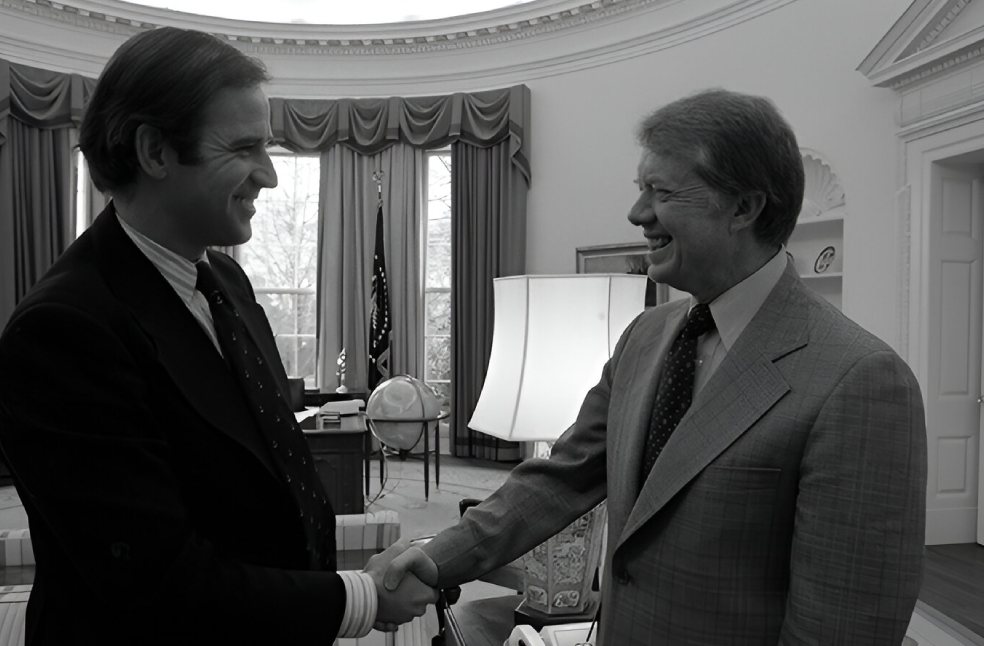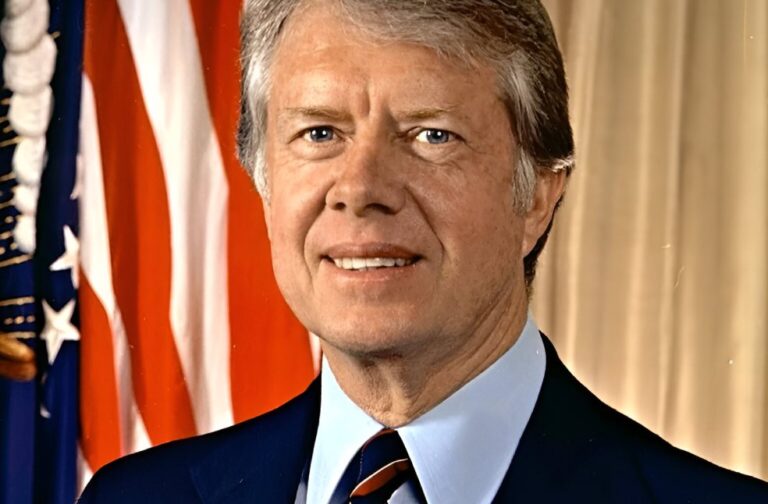United States: Jimmy Carter, the 39th president of the United States, passed away at the age of 100. Jimmy Carter entered hospice care in February 2023 after years of declining health. Diagnosed with cancer in 2015, he became the longest-lived U.S. president, achieving a milestone century in October 2024.
Carter’s post-presidential humanitarian work, including disease eradication and election monitoring, gained him a Nobel Peace Prize in 2002. His presidency, marked by a groundbreaking Middle East peace accord, was hindered by domestic economic challenges and the Iranian hostage crisis.
Born in rural Georgia during the Great Depression, Carter’s upbringing on a peanut farm shaped his grounded and pragmatic approach to life. He served in the U.S. Navy before yielding to Georgia to manage the family business and later became a Democratic governor celebrated for modernising the state.
In 1976, Carter ran for the presidency as an outsider, leveraging his “Peanut Brigade” of campaign supporters to connect with disillusioned voters. His win was seen as a commitment to restore faith in American governance following the Vietnam War and Watergate scandal.
Carter’s foreign policy achievements remain his crowning legacy. In 1978, he brokered the Camp David Accords, a historic peace deal between Egypt and Israel. He also normalised diplomatic relations with China and secured agreements to restrict nuclear weapons with the Soviet Union.

However, his domestic policies faced resistance. Efforts to fight energy dependence and inflation through green initiatives and tax reforms were inhibited by Congress. Meanwhile, the Iranian hostage crisis dominated the final years of his presidency, surpassing his successes and paving the way for Ronald Reagan’s 1980 landslide victory.
After leaving office, Carter committed himself to global diplomacy and humanitarian work. The Carter Center, established in 1982, has monitored elections in 39 countries and fought diseases like river blindness and malaria. The Center’s Guinea worm eradication campaign reduced cases from 3.5 million in 1986 to near elimination today.
Carter also remained active in Habitat for Humanity, lending his hands to building homes for the needy well into his 90s. He authored numerous books and continued advocating for peace, often taking controversial stances on matters like Palestine, which he described as suffering under “apartheid.”
Carter’s admirers argue that history will view his presidency more kindly than voters did in 1980. His six-decade commitment to human rights, health, and diplomacy stands as a testament to his character.
Reflecting on his life, Carter once remarked that, “I can’t deny I’m a better ex-president than I was a president.” As the world bids adieu to the former leader, his legacy persists in the lives he touched and the causes he championed.



